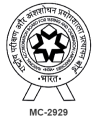Frequently Asked Questions
How should I prepare for a kidney biopsy or other nephrology procedure?
Preparing for a kidney biopsy or similar nephrology procedure includes following specific instructions for your safety. You may need to stop certain medications, like blood thinners, several days before the procedure. Fasting may be required for a few hours beforehand. Our team will provide a complete list of guidelines to ensure you're fully prepared. Please contact us if you have any questions or concerns about these instructions.
. What should I bring with me to the hospital for my nephrology procedure?
Please bring a list of your current medications, prescription, any recent medical records, and identification documents. You may also want to bring comfortable clothing and any personal items you may need for a short hospital stay. We recommend leaving valuables at home. Our team will ensure you have all the essentials for a smooth procedure and recovery.
What happens during a kidney biopsy?
During a kidney biopsy, a small sample of kidney tissue is collected using a thin needle. You will be given local anesthesia to numb the area, and the procedure is usually guided by ultrasound for accuracy. This helps us diagnose kidney conditions by examining the tissue under a microscope. The entire procedure takes about 30 to 60 minutes, and we strive to keep you as comfortable as possible throughout.
How long does dialysis treatment take?
Hemodialysis sessions typically last between 3 to 5 hours and are performed about three times a week, depending on your medical needs. Peritoneal dialysis is usually done daily and can be managed at home. Our nephrologists will work with you to create a dialysis schedule that fits your lifestyle and health requirements.
What should I expect during recovery after a kidney biopsy?
After a kidney biopsy, you may be monitored in the hospital for a few hours to ensure there are no complications. Some patients experience mild soreness in the area, which usually resolves within a day or two. It’s advisable to avoid strenuous activities for at least a week. Our doctors will give you detailed aftercare instructions to support a smooth recovery.
When can I resume normal activities after dialysis?
Many patients are able to return to their normal routine shortly after dialysis, although some experience mild fatigue. Staying well-hydrated and eating a balanced diet can help boost your energy levels post-treatment. Our doctors will help you develop a plan to gradually resume your daily activities in a way that supports your health.
What are the risks associated with a kidney biopsy?
While kidney biopsies are generally safe, there are some risks, such as bleeding, infection, or discomfort at the biopsy site. Our doctors takes all necessary precautions to minimize these risks and will monitor you closely after the procedure. Our doctors also provide guidelines on signs to watch for at home and when to seek medical attention.
What are the benefits of dialysis?
Dialysis plays a vital role in managing kidney disease by removing waste products and excess fluid from the blood when the kidneys can no longer do so effectively. This treatment can help relieve symptoms like fatigue, swelling, and difficulty breathing, and improve your overall quality of life. Our doctors will explain how dialysis can support your health and discuss any questions you may have.
Are there any risks involved in dialysis?
Although dialysis is generally safe, potential risks include infection, low blood pressure, and muscle cramps. Our medical team closely monitors all treatments to reduce these risks and provide you with a safe experience. You will receive guidance on how to minimize these risks and what to expect during your treatment.



